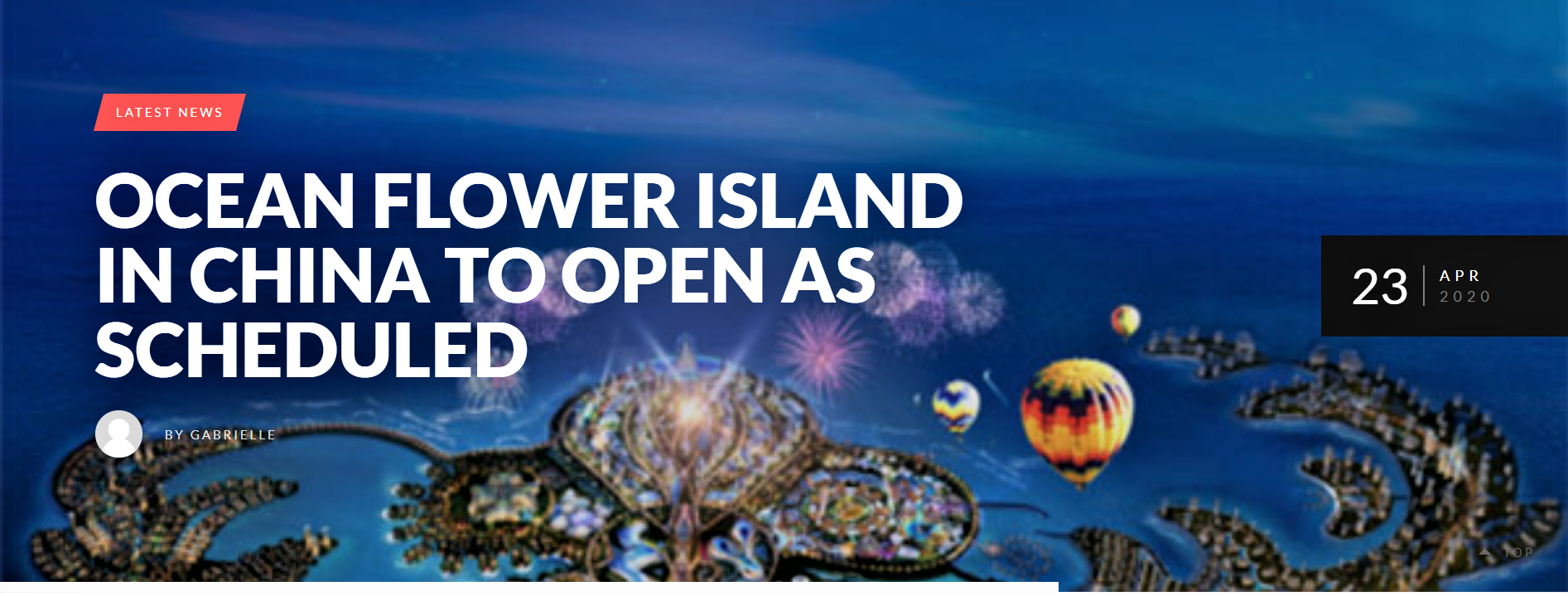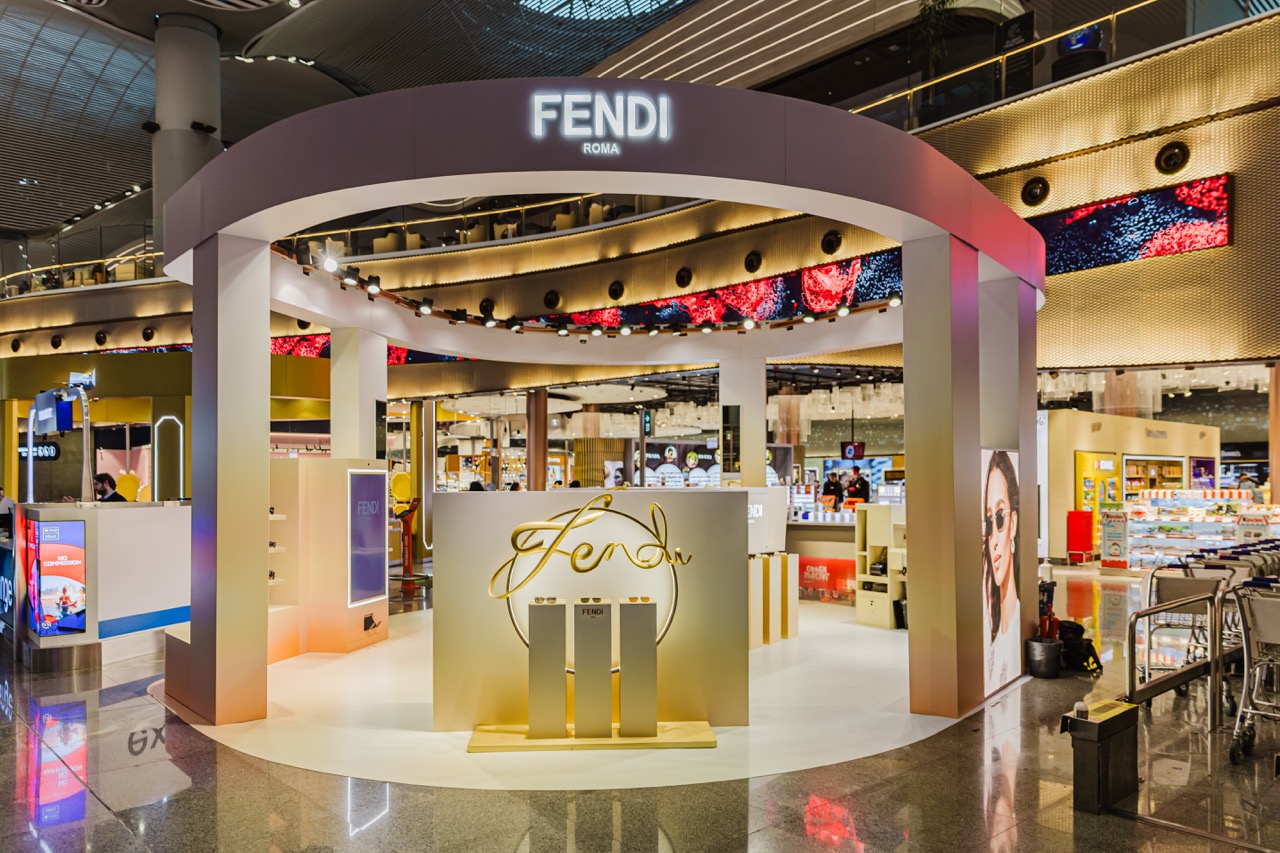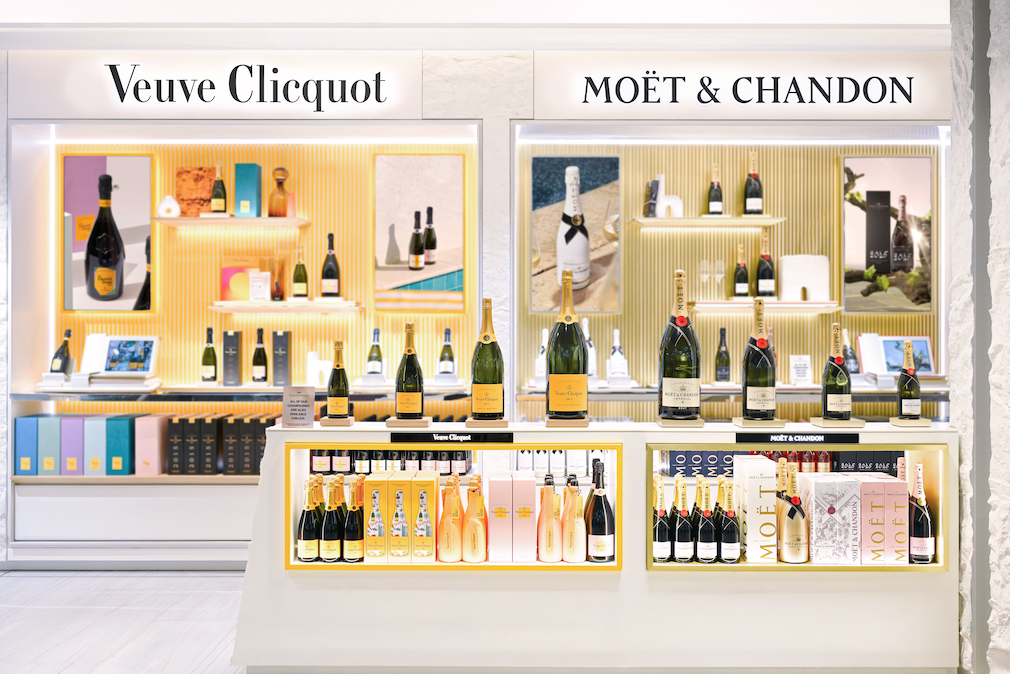CHINA. Interest in the burgeoning duty free sector continues to heat up in China with multiple domestic market players lining up licence applications. But seeing those licences granted will be a much greater challenge, market insiders warn.
As reported first by The Moodie Davitt Report’s Chinese information partner DutyFreeExpert, Beijing-based department store operator Wangfujing Group was granted a duty free licence in June. This month, the retailer (which is attending the Moodie Davitt Virtual Travel Retail Expo in October) announced the creation of a wholly owned subsidiary duty free company.
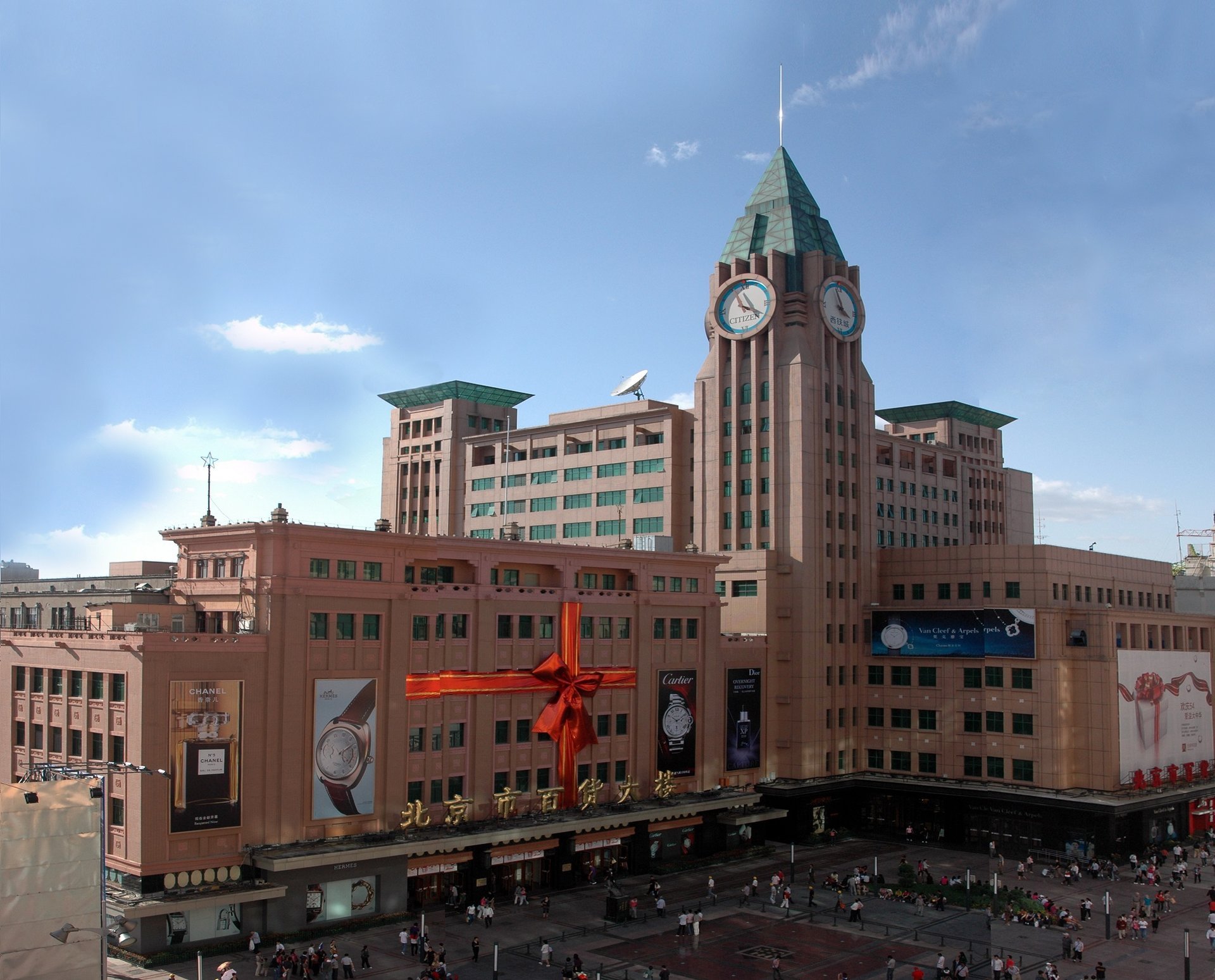
This week, publicly listed tourism services provider Lingnan Holdings of Guangzhou confirmed that its parent, Lingnan Group, has also applied for a duty free licence. The disclosure (below) came in a stock exchange announcement after the company’s share price rose above +20% on both 14 and 15 July. The company cautioned, however, that the application was work in progress and its chances of success uncertain.
Lingnan Group is part of the Guangzhou State-owned Assets Supervision and Administration Commission.
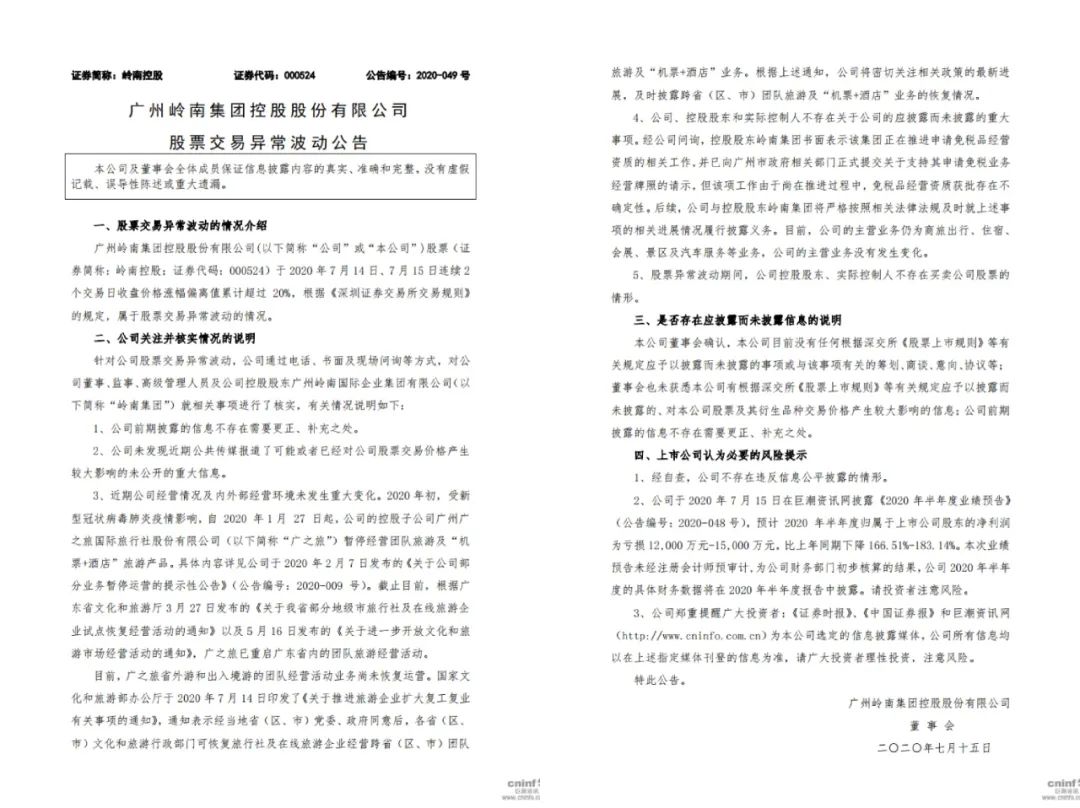
Meanwhile, Chinese media International Finance news and Sina.com also reported that Wuhan-based department store company Wuhan Wushang Group Co (listed as E Wushang A) had issued a similar disclosure on Wednesday (15 July) in response to abnormal fluctuations in stock trading between 13 and 15 July. “The company has submitted an application for the qualification of duty free goods management to the relevant government departments, but the work is still in progress,” Sina.com reported.
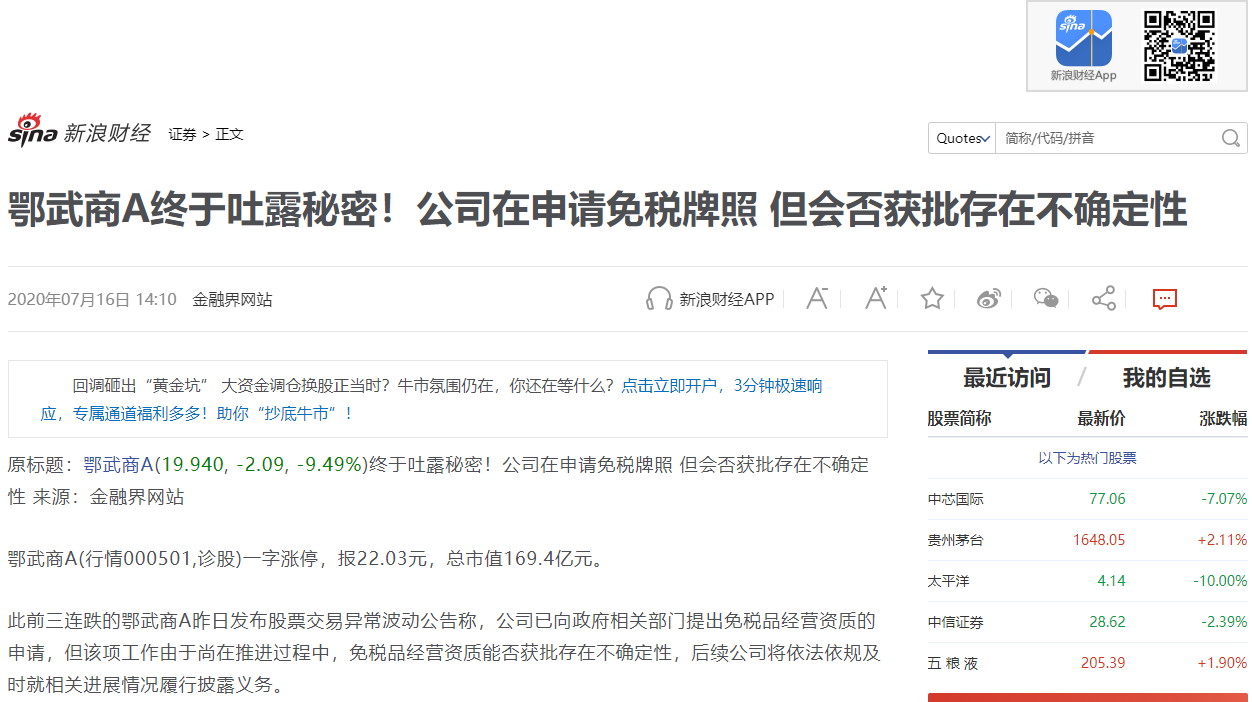
“There is uncertainty in the approval,” the company noted, saying that it would provide further information in a correct and timely manner.
A senior representative of the company told International Finance News that it was too early to say whether a licence would be granted. “Enterprises need to go through a certain process to obtain duty free business qualifications, which means that companies that have already declared [their application] are still some distance away from obtaining licences. And even if they get licences, the development of related businesses will not happen quickly.”
Wang Guoping, a member of the Senior Advisory group of Lian Shang.com told International Finance News that the odds of leading department store groups entering the duty free arena in first-tier cities such as Beijing and Shanghai are relatively high. However, he suggested that their focus might be on less-established brands than those found in existing duty free stores to avoid market turmoil.
The rush of interest in China’s domestic duty free industry is linked to the 13 March announcement issued by 23 departments including the National Development and Reform Commission and the Ministry of Commerce. This outlined a programme to jointly develop China’s tax and duty free industry with the aim of building a well-rounded ecosystem “with Chinese characteristics”.
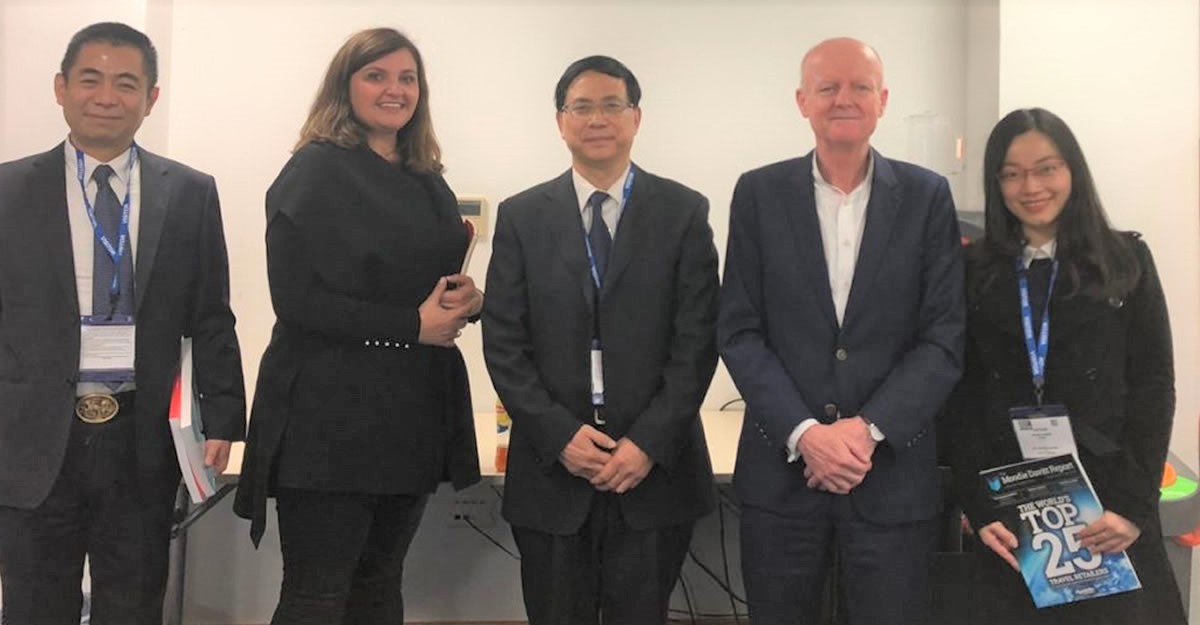
Solve the ‘dual outflow’
In an excellent leader article this week, Sina.com asked “What are ‘Chinese characteristics?’
“On the one hand, it means ‘serving both foreigners and outgoing residents equally’, on the other it sets up a domestic product sales area in duty free shops, supports domestic products, and builds its own brand identity,” the article stated.
“Generally, internationally, the purpose of opening duty free shops is to compete for the high-end consumption power of other countries, and to use tax free as a ‘bait’ to attract high-net worth people from other countries to come to consume. Although a part of the tax is lost, the increase in tourists drives sales of local food and accommodation. An industry chain for shopping and entertainment is also very cost-effective for tourists.”
To serve this population well, first- and second-tier cities need to build enough citywide duty-free shops so that high-net-worth people can easily buy big-name goods without going abroad for shopping
However, the article pointed out that such attractions have seen a disproportionate balance of Chinese spending made abroad. “The high growth rate of Chinese outbound travel in recent years is also closely related to the demand for duty free shopping overseas,” it said.
“At the same time, because duty free shops sell mostly foreign brand goods, this has led to a double outflow of China’s high-net-worth consumption power. On the one hand, tourism consumption flows to the destination country’s food, accommodation, travel, and tourism industry chain, and on the other, luxury consumption. These all flowed to Europe, Japan and South Korea, where big luxury brands and high-end cosmetics brands gather.”
The article notes that for a Chinese shopper travelling to South Korea, the duty free shopping saving will be enough to cover the entire travel expenses. “In this case, China’s major tourist cities cannot compete with South Korea and other countries,” it said.



“The tax exemption system with Chinese characteristics is designed to solve this ‘dual outflow’. China’s high-net-worth people are located in major domestic first- and second-tier cities. To serve this population well, first- and second-tier cities need to build enough citywide duty-free shops so that high-net-worth people can easily buy big-name goods without going abroad for shopping.”
The article contends that a large number of first- and second-tier cities need to build duty free shops – and that a many domestic brands need to be deeply connected with those shops. It predicted that established domestic market players will fill those gaps, thanks for their well-established supply chains. The tax-exempt system will also boost the development of Chinese domestic brands, Sina.com stated.


